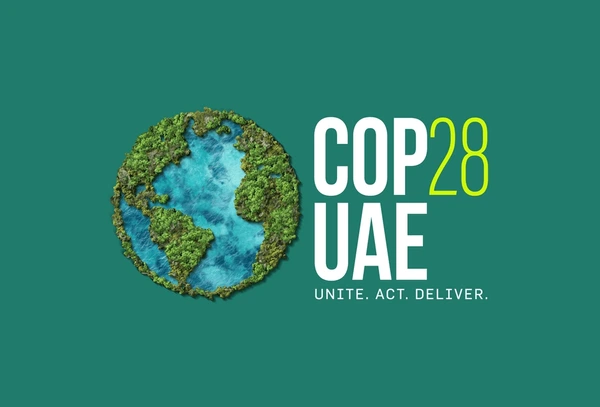
The battle against climate change has reached a critical juncture, with the international community grappling to implement strategies that can mitigate the disastrous impacts of a warming planet. Whilst strides have been made in recent years, not nearly as much as necessary has been achieved. The Paris Agreement, signed in 2015, was a watershed moment in the fight against climate change. It brought together nations from around the world, setting a framework for collective action to limit global warming to well below 2 degrees Celsius above pre-industrial levels. Nonetheless, the Emissions Gap Report, a UN annual report, highlights that there is still a considerable gap between countries’ ambitions and actions being taken. The report found that to stay below 2 degrees Celsius, global emissions would need to fall by roughly 29 percent between now and 2030. Many are under the impression states are not taking sufficient action, which generated widespread discontent and anxiety, resulting in climate change protests all around the world. It is in this climate of urgency that COP28 is set to take place on the 30th of November 2023.
Central to the talks will be the future of fossil fuel, specifically whether countries should commit to start phasing out the use of CO2-emitting coal, oil and gas. Whilst during COP26 countries agreed to phase out the use of coil, no agreement on quitting fossil fuels has been reached. Although many recognise that a phase out is inevitable, only the US, EU and climate-vulnerable countries are insisting on a final COP28 deal that commits to stop their use. Another important point to be discussed are new technologies to tackle emissions. The UAE and other countries whose economy is highly dependent on fossil fuels are hoping to focus the talks on new technologies designed to capture and store CO2 emissions underground. Although these technologies can play a crucial role in minimising the impact of emissions, there is also widespread scepticism as to how they can serve as an excuse to stall the transition to renewable energy.
Another difficult topic to discuss during the Conference is the financing for the costs of climate change. Apart from the money necessary for developing countries to tackle climate change, estimated to be around $200 billion every year, there is also the need to cover the damage already suffered. The latter issue should be addressed by the so called “Loss and Damage” fund. Finally, the proposal to set goals to triple renewable energy capacity and to double energy savings by 2030 will be covered. So far, there seems to be sufficient support for these new goals, considering the G20 major economies are backing them.
Overall, it would seem that the COP28 could be a positive step forward in taking more decisive actions against climate change. Nonetheless, many criticise the conference for being just a stage for countries to parade their commitment to tackle climate change. The criticisms are exacerbated not only by the lack of substantive action that often follows these conferences but also by the many controversies surrounding the exploitation of these occasions by certain countries to foster individual interests, contrary to the goal of the conference itself. Specifically, this year’s hosting country, the UAE, has come under scrutiny following the uncovering of its plan to use its role as host to strike oil and gas deals.
Leaked briefing documents prepared by the UAE’s COP28 team reveal plans to discuss fossil fuel deals with 15 nations. The documents contain many “talking points”, which concerned deals between Adnoc, the UAE’s state oil company, and several countries. One of these talking points revealed that Adnoc, together with China, is willing to evaluate international liquified natural gas opportunities in Canada, Australia and Mozambique. Importantly, Adnoc also suggested that nations of Saudi Arabia and Venezuela should be convinced that sustainable development of their countries’ natural resources is not in conflict with their commitment to climate change. This confirms what was already suspected: oil-producing countries are very much not about to give up on the money that comes from fossil fuel. Just how strong and persistent fossil fuel lobbying still is also concerned the UN, which has taken actions to stop fossil fuel lobbyists from attending climate talks “en masse”. This picture is further aggravated by the accusations that the UAE is still engaging in routine flaring.
Flaring consists in the burning of waste gas during oil drilling, which releases toxic pollutants and greatly contributes to planet-warming. The investigation started by the BBC suggests pollution is spreading for miles and it risks endangering the health of millions of people besides heavily contributing to climate change. The UAE banned routine flaring 20 years ago and yet satellite images show that it is still taking place at offshore sites on the daily basis. No action has been taken by the international community. The widespread unwillingness to hold the UAE government accountable had already become clear when no action was taken in the face of evidence of its involvement in war crimes in Yemen; however, the irony of giving the UAE such a central role in the talks on climate change cannot be missed by other countries, whose credibility this risks effecting. In fact, the influence granted to the UAE both undermines the transition to renewable energy and hinders the credibility of conferences like COP28 which risk looking like a farse.
It is thus necessary for the international community to show a more decisive and less compromising attitude towards countries like the UAE who continue to pursue their own interests whilst parading a seemingly false commitment to tackling climate change. It is only when greater accountability will be enforced, and fossil fuel lobbying will be eradicated from these contexts that climate change conferences can stand a chance to bring about actual change.
By The European Institute for International Law and International Relations














